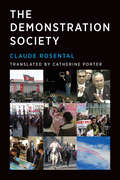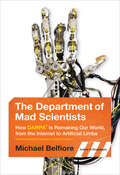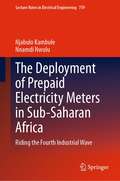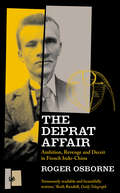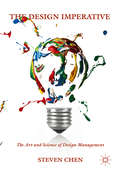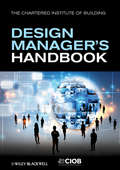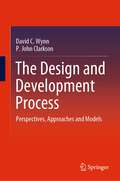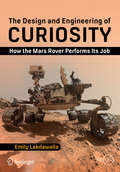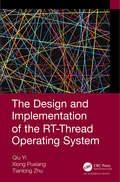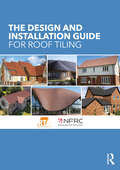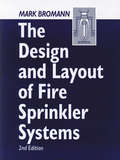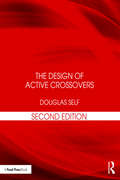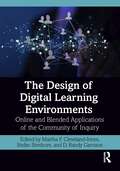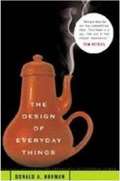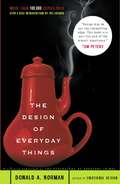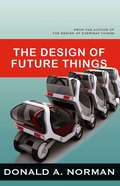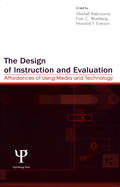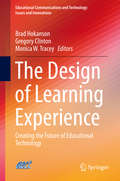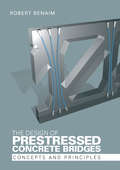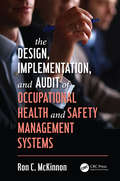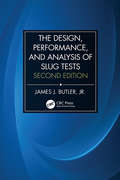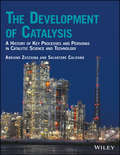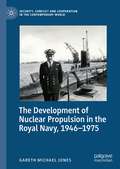- Table View
- List View
The Demonstration Society (Infrastructures)
by Claude RosentalToday, as in the past, public demonstrations are not only tools to prove, persuade, and promote, but also fundamental forms of social interaction and exchange.YouTube demos of makeup products by famous influencers, demonstrations of strength during street protests, demonstrations of military might in North Korea: public demonstrations are omnipresent in social life. Yet they are often perceived as isolated events, unworthy of systematic examination. In The Demonstration Society, Claude Rosental explores the underlying dynamics of what he calls a &“demonstration society.&” He shows how, both in today&’s world and historically, public demonstrations constitute not only tools to prove, persuade, and promote, but fundamental forms of interaction and exchange, and, in some cases, attempts to lead the world. Rosental compares demos with other forms of public demonstrations, drawing out both their peculiarities and common features. He analyzes the processes through which demonstrations are conceived and carried out, as well as the skills of their producers. He also compares contemporary demos with historical demonstrations including theaters of machines in the Renaissance, public demonstrations of natural philosophy in the seventeenth century, and demonstrations of the magic lantern in the nineteenth century. Above and beyond the entertainment they sometimes provide, demonstrations are experienced as intense moments that broadly involve alliances, material and symbolic goods, and, more generally, the future of individuals and collectives. Rosental elucidates the many ways in which we live today, as in the past, in a society of demonstration.
The Department of Mad Scientists: How DARPA Is Remaking Our World, from the Internet to Artificial Limbs
by Michael BelfioreThe first-ever inside look at DARPA—the Defense Advanced Research Projects Agency—the maverick and controversial group whose futuristic work has had amazing civilian and military applications, from the Internet to GPS to driverless cars America's greatest idea factory isn't Bell Labs, Silicon Valley, or MIT's Media Lab. It's the secretive, Pentagon-led agency known as DARPA. Founded by Eisenhower in response to Sputnik and the Soviet space program, DARPA mixes military officers with sneaker-wearing scientists, seeking paradigm-shifting ideas in varied fields—from energy, robotics, and rockets to peopleless operating rooms, driverless cars, and planes that can fly halfway around the world in just hours. DARPA gave birth to the Internet, GPS, and mind-controlled robotic arms. Its geniuses define future technology for the military and the rest of us.Michael Belfiore was given unprecedented access to write this first-ever popular account of DARPA. Visiting research sites across the country, he watched scientists in action and talked to the creative, fearlessly ambitious visionaries working for and with DARPA. Much of DARPA's work is classified, and this book is full of material that has barely been reported in the general media. In fact, DARPA estimates that only 2 percent of Americans know much of anything about the agency. This fascinating read demonstrates that DARPA isn't so much frightening as it is inspiring—it is our future.
The Deployment of Prepaid Electricity Meters in Sub-Saharan Africa: Riding the Fourth Industrial Wave (Lecture Notes in Electrical Engineering #759)
by Nnamdi Nwulu Njabulo KambuleThis book provides a novel and holistic perspective on the deployment of prepaid electricity meter technology among energy impoverished (vulnerable) households based in developing or under-developed communities of Sub-Saharan Africa. It explores and reviews the nexus between the technology and socio-economic development, technology acceptance and rejection in low-income households, and ultimately proposes a contextual model to avert or assuage energy poverty in the region using the technology. Science is applied as a convenient, valid, and reliable model to generate bespoke, contextual, and relevant knowledge for policy makers on the development of prepaid meter market in the region. The knowledge shared contributes to extant discourse and debates around the effectiveness of the technology within indigent household settings. The book is intended for energy/electricity utilities, prepaid electricity businesses, policy developers, and other interested parties whose work is related to prepaid electricity meters.
The Deprat Affair
by Roger OsborneDetective story, social history, human drama, The Deprat Affair recreates the hothouse atmosphere of colonial Indochina in the early twentieth century. Among its cliques, its bitter rivalries, its nepotism and favours, how are we to disentangle the scientific, the moral and the legal 'truths' of the affair? Most of all, the story centres on one compelling individual - Jacques Deprat. En route to a golden future as one of France's greatest geologists, he is suddenly accused of fraud and plunged into a desperate fight to save his reputation. Convicted of placing European fossils among samples collected in Indochina, he is dismissed from his job, and expelled from the Société Géologique de France. Thrown out of the science to which he has given everything, he re-invents himself, changes his name, and begins not one, but two fascinating new lives - each as extraordinary and colourful as the one he left behind. And even in the manner of his premature death, Deprat proved his ability to shake the world. Eighty years on from his conviction, the truth of the Deprat affair is still in doubt - and is still passionately debated among French scientists. But innocent or guilty, Jacques Deprat is an astonishing figure, whose capacity to overcome the world's disgrace and the dissolution of his dreams makes an amazing and captivating story.
The Depths Of Space: The Story Of The Pioneer Planetary Probes
by Mark WolvertonThe first spacecraft to explore the secrets of the Sun, Jupiter, Saturn, and the void beyond Pluto, the Pioneer space probes have been the trailblazers of the space age, truly going where no man has gone before. Emblazoned with the nude figures of a man and a woman, etched representations of our human form, the Pioneer generation of probes were aptly named. Launched into the inky depths of space, they were more than mere machines, they were humanity’s first emissaries into deep space. And the pictorial inscriptions that adorned the crafts embodied the hopes and dreams of everyone involved in the Pioneer program. They were our humble attempt to communicate with the extraterrestrial intelligent life we imagined the probes might encounter … they were our message in a bottle. Perhaps the most efficient, reliable, and cost effective program to come out of NASA, the Pioneer missions are a shining example of how a small and talented group of people can, against all odds, pull something off that has never been done before. Indeed, more than thirty years after its launch in 1972, Pioneer 10 is still cruising into interstellar space, sending back data as it courses through the galaxy while Pioneer 6, in solar orbit, is more than 35 years old and humankind’s oldest functioning spacecraft. But despite their enduring contributions, the Pioneer project remains a footnote in space history, little more than a humble prologue to its inheritors. The Depths of Space recounts the long overdue history of Pioneer both as a scientific and technological achievement and as the story of the exceptional people who made the program possible. This tight narrative captures the black-coffee buzz of full-throttle, deadline-driven production, the sharp, intense thrill of discovery, the pang of anxiety that accompanies looming danger and ultimate loss, and the satisfaction and pride of creating an enduring legacy.
The Design Imperative: The Art And Science Of Design Management
by Steven ChenThis book examines how to optimize design management processes in order to produce innovation within organizations. It first looks at how to harvest a culture of design and then examines topics specific to product and service design. Individual chapters provide anecdotes drawn from leading design-oriented firms, and best practices based on cutting-edge, scientific research. This book's unique blend of theory and application will offer students, scholars, and managers valuable insight on how organizations can revolutionize their design processes and leverage their approach to create groundbreaking products and services.
The Design Manager's Handbook
by John Eynon CIOB (The Chartered Institute of Building)Design management as a recognised role in the built environment industry is relatively new, initially arising from the need for better co-ordination and delivery of design information from design teams to main contractors - particularly important as procurement routes involving contractor led design have become much more commonplace. The advent of design packages driven by specialist sub-contractors has also increased the need for co-ordination and management of the design process. With the growing complexity of construction projects, effective design management is increasingly central to project success. BIM, as it gains acceptance across the industry will undoubtedly have a huge impact on project delivery process and the role of the Design Manager. The CIOB Design Manager’s Handbook covers subjects such as design process and management tools, the role of the Design Manager, value management and innovation, procurement routes and implications, people dynamics, and factors that will affect the development of the Design Manager’s role in the future, including BIM. It will ensure Design Managers understand the processes, tools and skills that are required to be successful in the role, and will assist them in delivering real value to complex construction projects. Written for both the Design Manager practitioner and students on construction related degree courses, anyone interested in construction based design management will also find the book useful.
The Design Thinking Playbook: Mindful Digital Transformation of Teams, Products, Services, Businesses and Ecosystems
by Larry Leifer Michael Lewrick Patrick LinkA radical shift in perspective to transform your organization to become more innovative The Design Thinking Playbook is an actionable guide to the future of business. By stepping back and questioning the current mindset, the faults of the status quo stand out in stark relief—and this guide gives you the tools and frameworks you need to kick off a digital transformation. Design Thinking is about approaching things differently with a strong user orientation and fast iterations with multidisciplinary teams to solve wicked problems. It is equally applicable to (re-)design products, services, processes, business models, and ecosystems. It inspires radical innovation as a matter of course, and ignites capabilities beyond mere potential. Unmatched as a source of competitive advantage, Design Thinking is the driving force behind those who will lead industries through transformations and evolutions. This book describes how Design Thinking is applied across a variety of industries, enriched with other proven approaches as well as the necessary tools, and the knowledge to use them effectively. Packed with solutions for common challenges including digital transformation, this practical, highly visual discussion shows you how Design Thinking fits into agile methods within management, innovation, and startups. Practical frameworks, real-world solutions, and radical innovation wrapped in a whole new outlook give you the power to mindfully lead to new heights. From systems and operations to people, projects, culture, digitalization, and beyond, this invaluable mind shift paves the way for organizations—and individuals—to do great things. When you’re ready to give your organization a big step forward, The Design Thinking Playbook is your practical guide to a more innovative future.
The Design and Development Process: Perspectives, Approaches and Models
by P. John Clarkson David C. WynnThis book explores a process perspective on design and development, grounded in research in design studies, engineering design and systems design.The design and development process is important---it creates all artificial products and systems and determines how well they address human needs. The process perspective set out in this book has value for design and development practice and education, and is in its own right a fascinating topic of investigation.This book expands on the foundations of a process perspective and discusses its realisation in many process models, theories and approaches that have been developed over the years. The chapters provide connected overviews of key concepts and introduce new conceptual frameworks to clarify relationships between the contributions discussed. Practical considerations and competencies required to realise the tangible benefits of a process perspective are also discussed. A unique aspect of this book is that it brings together many perspectives on the design and development process: those that focus on individual design activity through to those that focus on large-scale development projects; those of research interest and those of practical interest; and those of relevance to design contexts ranging from human-centered design to engineering design and systems design. The chapter bibliographies collect carefully-selected recommendations for further reading on each topic discussed. The book additionally contains many figures presented in colour, visually reflecting each topic's relationship to the new organising frameworks that are introduced.
The Design and Engineering of Curiosity: How The Mars Rover Performs Its Job (Springer-praxis Bks.)
by Emily LakdawallaThis book describes the most complex machine ever sent to another planet: Curiosity. It is a one-ton robot with two brains, seventeen cameras, six wheels, nuclear power, and a laser beam on its head. No one human understands how all of its systems and instruments work. This essential reference to the Curiosity mission explains the engineering behind every system on the rover, from its rocket-powered jetpack to its radioisotope thermoelectric generator to its fiendishly complex sample handling system. Its lavishly illustrated text explains how all the instruments work -- its cameras, spectrometers, sample-cooking oven, and weather station -- and describes the instruments' abilities and limitations. It tells you how the systems have functioned on Mars, and how scientists and engineers have worked around problems developed on a faraway planet: holey wheels and broken focus lasers. And it explains the grueling mission operations schedule that keeps the rover working day in and day out.
The Design and Implementation of the RT-Thread Operating System
by Qiu Yi Xiong Puxiang Tianlong ZhuSince the release of V0.01 in 2006, to the present V4.0 version, RT-Thread has developed a reputation among developers for its open source strategy. RT-Thread has gained a large following among members of the embedded open source community in China with hundreds of thousands of enthusiasts. RT-Thread is widely used in energy, automotive, medical, consumer electronics, among other applications, making it a mature and stable open source embedded operating system. The purpose of RT-Thread RTOS Design and Implementation is to create an easy learning curve for mastering RT-Thread, so that more developers can participate in the development of RT-Thread and work together to create an open source, tiny, and beautiful Internet of Things operating system. The book’s first part introduces the RT-Thread kernel and starts with an overview of RT-Thread before covering thread management, clock management, inter-thread synchronization, inter-thread communication, memory management, and interrupt management. The second part begins with RT-Thread kernel porting and explains how to port RT-Thread to a hardware board to run it. The second part also introduces RT-Thread components and discusses the Env development environment, FinSH console, device management, and network framework. Additional topics covered include: The I/O device framework Virtual file systems Peripheral interfaces Devices including the PIN device, UART device, and ADC device, among others. Each chapter features code samples, as well as helpful tables and graphs, so you can practice as you learn as well as perform your own experiments.
The Design and Installation Guide for Roof Tiling
by The Roof Association The National Roofing ContractorsThe Design and Installation Guide for Roof Tiling is the definitive guide to obtaining successful results in pitched roofing construction using clay or concrete tiles. It was written by a team of experts from the Roof Tile Association (RTA) and the National Federation of Roofing Contractors (NFRC), the representative trade associations for pitched roofing. This book is in line with British and European Standards, the latest best site practices and industry recommendations to ensure readers are receiving the most up-to-date and accurate information available in the field.Based on actual teaching practice, this book is highly illustrated throughout to increase the accessibility of the text for the reader in their exploration of the practical aspects of roofing. It also includes an extensive glossary of roofing terms for ease of reference. It brings together a comprehensive collection of the design, material specifications and workmanship requirements to construct a successful tiled pitched roof, including:• up-to-date design, product and workmanship standards• current best site practice• advances in health and safety• current typical scope of works for a roofing contractor• broad knowledge of the overall building envelope performance; specifically, the increasing insulation and airtightness requirements.Students following diploma (Foundation, Intermediate and Advanced levels) and apprenticeship routes will find this book to be an invaluable reference source of information that will accompany them throughout their studies. Building professionals concerned with the design, detailing and specification of roofing will also find this book to be an essential reference.
The Design and Layout of Fire Sprinkler Systems
by Mark BromannAlthough effective fire sprinkler systems are crucial to public safety, for years, the designers of those systems had few published resources to reference and guide them through their design processes. The first edition of this book changed all that, and now The Design and Layout of Fire Sprinkler Systems Second Edition suits their needs even bette
The Design of Active Crossovers
by Douglas SelfThe use of active crossovers is increasing. They are used by almost every sound reinforcement system, and by almost every recording studio monitoring set-up. There is also a big usage of active crossovers in car audio, with the emphasis on routing the bass to enormous low-frequency loudspeakers. Active crossovers are used to a small but rapidly growing extent in domestic hifi, and I argue that their widespread introduction may be the next big step in this field. The Design of Active Crossovers has now been updated and extended for the Second Edition, taking in developments in loudspeaker technology and crossover design. Many more pre-designed filters are included so that crossover development can be faster and more certain, and the result will have a high performance. The Second Edition continues the tradition of the first in avoiding complicated algebra and complex numbers, with the mathematics reduced to the bare minimum; there is nothing more complicated to grapple with than a square root. New features of the Second Edition include: ● More on loudspeaker configurations and their crossover requirements: MTM Mid-Tweeter-Mid configurations (The d'Appolito arrangement) Line arrays (J arrays) for sound reinforcement Frequency tapering Band zoning Power tapering Constant-Beamwidth Transducer (CBT) loudspeaker arrays ● More on specific sound-reinforcement issues like the loss of high frequencies due to the absorption of sound in air and how it varies. ● Lowpass filters now have their own separate chapter. Much more on third, fourth, fifth, and sixth-order lowpass filters. Many more examples are given with component values ready-calculated ● Highpass filters now have their own separate chapter, complementary to the chapter on lowpass filters. Much more on third, fourth, fifth, and sixth-order highpass filters. Many more examples are given with component values ready-calculated ● A new chapter dealing with filters other than the famous Sallen & Key type. New filter types are introduced such as the third-order multiple feedback filter. There is new information on controlling the Q and gain of state-variable filters. ● More on the performance of crossover filters, covering noise, distortion, and the internal overload problems of filters. ● The chapter on bandpass and notch filters is much extended, with in-depth coverage of the Bainter filter, which can produce beautifully deep notches without precision components or adjustment. ● Much more information on the best ways to combine standard components to get very accurate non-standard values. Not only can you get a very accurate nominal value, but also the effective tolerance of the combination can be significantly better than that of the individual components used. There is no need to keep huge numbers of resistor and capacitor values in stock. ● More on low-noise high-performance balanced line inputs for active crossovers, including versions that give extraordinarily high common-mode rejection. (noise rejection) ● Two new appendices giving extensive lists of crossover patents, and crossover-based articles in journals. This book is packed full of valuable information, with virtually every page revealing nuggets of specialized knowledge never before published. Essential points of theory bearing on practical performance are lucidly and thoroughly explained, with the mathematics kept to an essential minimum. Douglas' background in design for manufacture ensures he keeps a very close eye on the cost of things.
The Design of Digital Learning Environments: Online and Blended Applications of the Community of Inquiry
by D. Randy Garrison Cleveland-Innes, Martha F. Stefan StenbomThe Design of Digital Learning Environments provides comprehensive guidelines for creating and delivering high-quality online and blended learning experiences in higher education. With increasing numbers of students engaged in partially or fully digital education, graduate students preparing for design, development, or faculty roles need fresh, practical applications of cutting-edge research and theory. This textbook uses the Community of Inquiry framework, an influential and invaluable pedagogical model focused on deep learning, to aid educators in forging meaningful, collaborative connections with students engaged in digitally supported multi-modal learning in colleges and universities, MOOCs, and lifelong learning initiatives. Across five parts, the book covers the basic structure, concepts, terminology, and history of the Community of Inquiry; principles for designing and delivering digital courses; design for specific course conditions; applications of learning activities guided by the framework; and current limitations and directions for further research.
The Design of Everyday Things
by Donald A. NormanNorman reveals how smart design is the new competitive frontier. The Design of Everyday Things is a powerful primer on how - and why - some products satisfy customers while others only frustrate them.
The Design of Everyday Things
by Donald A. NormanFirst, businesses discovered quality as a key competitive edge; next came service. Now, Donald A. Norman, former Director of the Institute for Cognitive Science at the University of California, reveals how smart design is the new competitive frontier. The Design of Everyday Things is a powerful primer on how--and why--some products satisfy customers while others only frustrate them.
The Design of Future Things
by Donald A. NormanIn The Design of Future Things, best-selling author Donald A. Norman presents a revealing examination of smart technology, from smooth-talking GPS units to cantankerous refrigerators. Exploring the links between design and human psychology, he offers a consumer-oriented theory of natural human-machine interaction that can be put into practice by the engineers and industrial designers of tomorrow’s thinking machines. A fascinating look at the perils and promise of the intelligent objects of the future, The Design of Future Things is a must-read for anyone interested in the dawn of a new era in technology.
The Design of Instruction and Evaluation: Affordances of Using Media and Technology
by Fran C. Blumberg Howard T. Everson Mitchell RabinowitzThis book is about empirically tested knowledge and principles that inform the design of instructional and evaluation systems, and the use and promise of media and technology within such systems. Historically, psychology has informed the design of instructional and evaluation systems in different ways. A behavioral perspective emphasizes the role of the environment in determining behavior--a factor external to the learner. A cognitive perspective focuses on the role of cognitive processing and constraints in determining learning--factors that are internal to the learner. This volume presents the affordances approach--which addresses how the environment and the affordances within it interact with cognitive processes to determine learning. Insights into this interaction are presented. It is the book's contention that the affordance approach represents an advancement over the behavioral and cognitive perspectives; it is an evolution within the cognitive approach--not an alternative to it. The Design of Instruction and Evaluation: Affordances of Using Media and Technology is intended for education practitioners responsible for the implementation of media and technology in classrooms, for researchers and faculty, and for use as a text in courses on media and technology use in educational settings, instructional design, and psychology of learning.
The Design of Learning Experience
by Monica W. Tracey Brad Hokanson Gregory ClintonThis book delves into two divergent, yet parallel themes; first is an examination of how educators can design the experiences of learning, with a focus on the learner and the end results of education; and second, how educators learn to design educational products, processes and experiences. The book seeks to understand how to design how learning occurs, both in the instructional design studio and as learning occurs throughout the world. This will change the area's semantics; at a deeper level, it will change its orientation from instructors and information to learners; and it will change how educators take advantage of new and old technologies. This book is the result of a research symposium sponsored by the Association for Educational Communications and Technology [AECT].
The Design of Prestressed Concrete Bridges: Concepts and Principles
by Robert BenaimExamining the fundamental differences between design and analysis, Robert Benaim explores the close relationship between aesthetic and technical creativity and the importance of the intuitive, more imaginative qualities of design that every designer should employ when designing a structure. Aiding designers of concrete bridges in developing an intu
The Design, Implementation, and Audit of Occupational Health and Safety Management Systems (Workplace Safety, Risk Management, and Industrial Hygiene)
by Ron C. McKinnonThis book covers the design, implementation, and auditing of structured occupational health and safety management systems (SMS), sometimes referred to as safety programs. Every workplace has a form of SMS in place as required by safety regulations and laws. The Design, Implementation, and Audit of Occupational Health and Safety Management Systems describes some of the elements that constitute an SMS, the implementation process, and the auditing of the conformance to standards. It covers more than 60 processes, programs, or standards of a system, and gives important background information on each element. Guidelines and examples show how to design and implement the risk-based processes, programs and standards, and how to audit them against standards. The text is based on actual SMS implementation experiences across a wide range of industries. It offers a roadmap to any organization which has no structured SMS. It will guide them through the process of upgrading their health and safety processes to conform to local and international standards. It will lead them away from relying on reactive safety measures such as injury rates, to proactive actions which are measured by the audit of the system. Features Covers more than 60 elements of a safety management system (SMS) Provides practical examples of how to design, implement, and audit a structured SMS Based on actual SMS implementation experience across a wide range of industries Presents the integration of an SMS into the day-to-day functions of the organization
The Design, Performance, and Analysis of Slug Tests
by James Johnson Butler, Jr.The slug test can provide valuable information for hydrogeologic investigations ranging from assessments of sites of groundwater contamination to the monitoring of well deterioration through time. Inappropriate procedures in one or more phases of a test program, however, can introduce considerable error into the resulting parameter estimates. The Design, Performance, and Analysis of Slug Tests, Second Edition remedies that problem by explaining virtually all there is to know regarding the design, performance, and analysis of slug tests. The first edition has become the standard reference for all aspects of slug tests; this revised edition updates the earlier material and expands the topical coverage with new developments that have come to the fore in the intervening years between editions. Features: Describes and demonstrates the eight key steps for the performance and analysis of slug tests Presents new methods for the analysis of tests in unconfined aquifers and in highly permeable settings Expands topical coverage of LNAPL baildown tests and slug tests in small diameter wells Includes numerous flow charts that illustrate easy-to-use strategies for selection of analysis methods, and field examples demonstrate how each method should be used to get the most out of test data Offers straightforward practical guidelines that summarize the major points of each chapter Written for practicing groundwater consultants and engineers, The Design, Performance, and Analysis of Slug Tests, Second Edition will enable readers to get more reliable information from slug tests and increase the utility of this widely-used field method.
The Development of Catalysis: A History of Key Processes and Personas in Catalytic Science and Technology
by Adriano Zecchina Salvatore CalifanoThis book gradually brings the reader, through illustrations of the most crucial discoveries, into the modern world of chemical catalysis. Readers and experts will better understand the enormous influence that catalysis has given to the development of modern societies.• Highlights the field's onset up to its modern days, covering the life and achievements of luminaries of the catalytic era• Appeals to general audience in interpretation and analysis, but preserves the precision and clarity of a scientific approach• Fills the gap in publications that cover the history of specific catalytic processes
The Development of Nuclear Propulsion in the Royal Navy, 1946-1975 (Security, Conflict and Cooperation in the Contemporary World)
by Gareth Michael JonesThis book examines the development of nuclear propulsion in the Royal Navy from the first proposal in 1946 to the start-up of the last core improvement for the first submarine reactor power plant PWR 1 in December 1974. Drawing from unreleased records and archives, the book answers questions around three main themes. Political: what problems were encountered in transferring nuclear knowledge from the USA to the UK in the post-war period, and how much support was there for the development of nuclear propulsion? Military: why was there a requirement to develop nuclear propulsion, and in particular, why submarines? Technical: were the problems associated with nuclear energy fully appreciated, and did the UK have the technical and engineering capability to develop nuclear propulsion? Aside from the political considerations and military motives for developing nuclear propulsion in the Royal Navy, the author focuses on the technical problems that had to be overcome by all participants in the Royal Navy’s development of nuclear propulsion, adding significantly to naval historiography. Providing a critical analysis of the political, technological, operational and industrial issues of introducing nuclear propulsion into the Royal Navy, the author situates his research in the context of the evolving Cold War, changing Anglo-American relations, the end of Empire and the relative decline of British power.
